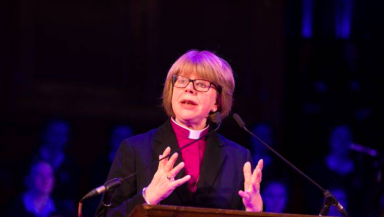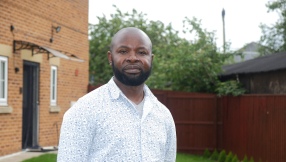
Church leaders have issued a warning against assisted suicide as proposed legislation goes to vote today in the House of Commons.
Sarah Mullally, the Bishop of London and former Chief Nursing Officer for the NHS, has urged MPs to halt the passage of the bill "in the face of serious concerns from the medical profession, palliative care specialists, and those facing the end of life".
She said the potential for abuse was "enormous" and that the bill was "unsafe and unworkable".
MPs will today either vote Kim Leadbeater's bill through for further revisions by the House of Lords or reject it altogether.
The bill would make it possible for terminally ill adults in England and Wales with less than six months to live to choose assisted suicide.
Bishop Mullally said MPs need to ask themselves searching questions about the kind of society they want to live in.
"If enacted, this bill would arrive amidst hugely inequitable access to palliative care and an NHS on life support," she said.
"The potential for abuse and uninformed or coerced decisions is enormous.
"This is not about so-called progressivism v conservatism, or atheism v religion. This is about the kind of society we want to live in.
"The vision that this Bill presents is one in which the disabled and vulnerable are made to feel like they are a burden, as if their lives are worth less.
"This is, and has always been, an unsafe and unworkable bill. The promise that Committee stage would ‘iron out’ major concerns with the Bill has not been forthcoming.
"Instead, it has presented more unanswered questions, left more doubts, and seen so-called protections crumble away before even coming into law.
"I implore every Member of Parliament to ask themselves whether they truly believe assisted suicide is right for the society in which we want to live."
Cardinal Vincent Nichols, head of the Catholic Church in England and Wales, raised concerns about the future of hospices and care homes after the rejection of amendments that would have allowed them to refuse to participate in assisted suicide.
He said that passing the bill as it stands would leave them in a "precarious situation" as the rights of the individual to demand assisted suicide were "likely to trump the mission and values of institutions such as hospices and care homes".
"In other words, a right to assisted suicide given to individuals is highly likely to become a duty on care homes and hospices to facilitate it," he said.
"We fear that this bill will thereby seriously affect the provision of social care and palliative care across the country.
"Institutions whose mission has always been to provide compassionate care in sickness or old age, and to provide such care until the end of life, may have no choice, in the face of these demands, but to withdraw from the provision of such care.
"The widespread support which hospices attract from local communities will also be undermined by these demands which, in many cases, will require these institutions to act contrary to their traditional and principled foundations.
"This tragedy can only be avoided by the defeat of this Bill on Friday."













